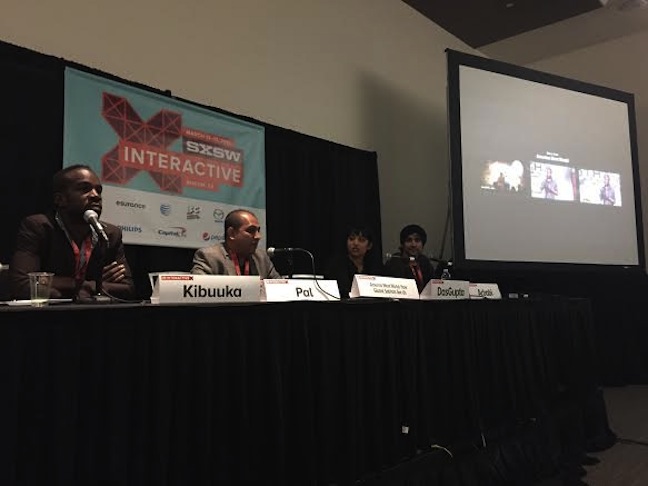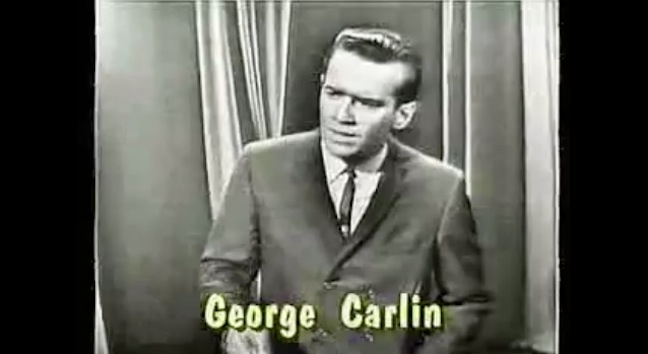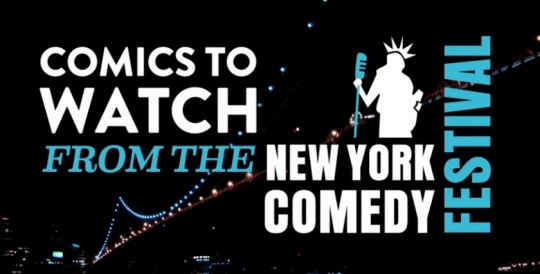While a packed SXSW convention center ballroom listened last month to Jimmy Kimmel walk down the memory lane of his life and TV career, a group of foreign-born comedians in a smaller room gave a more global and increasingly more relevant take on what’s happening in America and the world today, and telling us how they joke about it.
And more of us are watching and listening. Last year, John Oliver transformed late-night TV satire in America with his incisive long-form investigations on HBO with Last Week Tonight. Last week, James Corden took over The Late Late Show on CBS and brought with him the British panel show sensibility and freeness. This week, Comedy Central named South African bi-racial comedian Trevor Noah as Jon Stewart’s replacement to anchor The Daily Show
“For me personally Trevor’s news is fantastic and incredible validation for my work. I’ve spent the last two years advocating for and with international comics – trying to show how much immense talent there is around the globe, and Trevor getting picked to take Jon Stewart’s place shows that we’ve been on to something all along and definitely makes our work easier,” said Trina DasGupta, who moderated the SXSW 2015 Interactive panel, “America Meet World: How Global Satirists See Us.” “I haven’t spoken to Loyiso (yet) – they’re all on tour at the moment – but I have talked to a few other South African comics, like David who was on our SXSW panel, and they think it’s great. Trevor doing well can only help open the door for them as well.”
David is South African comedian/actor David Kibuuka, who writes and performs on Late Night News with Loyiso, that nation’s satirical TV offering hosted by Loyiso Gola, who’ll perform tonight in NYC at Stand-Up NY for an “America Meet World” showcase put together by DasGupta.
Tonight’s showcase at Stand-Up NY also features India’s Anuvab Pal — who spoke on the SXSW panel — David Smithyman from Australia (who writes on ABC’s Fresh Off The Boat), Julio Torres from El Salvador, Arnaud Collery from France, and NYC-based comedians Michelle Buteau and Jon Fisch.
Here’s a closer look at Loyiso Gola, who is probably South Africa’s most recognizable comedic face since Noah came to America, performing at an “America Meet World” showcase last fall at Gotham Comedy Club.
Speaking to more current events last month, Pal, Kibuuka, and Iranian-American Saman Arbabi (who created the so-called Daily Show of Iran with Parazit in 2009, followed by OnTen in 2011, both of which broadcast via Voice of America to Persian-speaking countries, and landed Arbabi on The Daily Show here in 2011) told the assembled in Austin that even they were confused by the meddling of Congressional Republicans with the very-ongoing Iranian nuclear talks. “It’s very confusing to the world,” Pal said.
“We don’t follow American politics as much as you would like us to, because we deal with real African problems,” Kibuuka joked. “We had Ebola. Can your 47 senators find a cure? That’s what we care about.”
Race remains a much bigger issue of concern and comedy both for South Africans. While Kibuuka could joke about Africans and African-Americans thinking President Barack Obama would do more specifically to help black people everywhere, he also seriously questioned the racism that still exists in America. Particularly when DasGupta challenged him to compare it to apartheid-era South Africa.
“The racism, it seems like it’s overflowing. Like it’s institutionalized. Because there was first, with Ferguson, so you had the Ferguson situation and then you would have thought that the white racist people, like the cops would say, we need to calm it down … for six months at least. A year without racism. You know. Practically, it’s not looking good. But racism is so inside. With the strangling!” he said, referencing the death of Eric Garner on Staten Island and subsequent lack of an indictment for the NYPD officer who strangled him. “There’s this Incredible Hulk-ness that white people go through when a black person does a thing. They become racist and then RRRRRRAAAAAGHHH! That kind of thing. And so, we feel that your racism is much more potent – but also fundamental and deeper.”
Pal added that police in India might be reduced to a joke about a fat man who can be easily bribed or corrupted to look the other way. Not in America. “Your policemen look like movie policemen…fighting aliens!”
The fears comedians have in other countries tend to come from centuries of cultural traditions and lead to self-censorship.
“For me personally, no, there is no line (I wouldn’t cross),” Arbabi said. “But culturally, there is a line. Especially in the Middle East, where they’re very sensitive toward religion. Religion is something that’s not really tolerated to make fun of – which is unfortunate, in my opinion – as the source of the problems. So there’s a lot of self-censorship when it comes to raising issues that’s rooted back to Islam. When I work with a group of people, doing TV shows, I try not to go around it. But when I, my own personal cartoons and stuff, that’s probably the first place I go.”
He says the real joke is how seriously Iran’s government takes his satire.
“That shows how weak the government is to be afraid of a comedy show,” he said. “I could definitely go back to Iran, but it’d be a one-way ticket. If a clown on television 5,000 miles away is threatening your government, then you should probably reconsider your government and what you’re doing. But they were. They were totally afraid of us.”
In India, Pal said the culture has been slow to pick up on the nuances of humor, which made itself paramount when they attempted a Bollywood celebrity roast. “It’s a tough country to do stand-up in where by and large, it’s not English speaking, so English language stand-up comedy is only going out to the English-speaking elite, and irony, to even a much smaller portion of that. So people are watching and thinking, ‘Well, this person is just insulting this person. Arrest him!’ There’s no other layer, because they were just taking it for what it was,” Pal said. “You have to explain to people what irony is. It’s going to take a while.”
The terrorist killings of cartoonists and staffers at French magazine Charlie Hebdo didn’t surprise Kibuuka for one, and he thought it surprised few people globally.
“The reason we don’t push Islamophobia is because, first of all, we think that everybody’s the same, but secondly because Islamic militants said, basically, if you talk about us, then we’re going to kill you,” Kibuuka said, which prompts a reaction of: “Oh, OK, cool. We won’t talk about you, then. We’ll cross that off the list. It’s fine!”
Everywhere, though, as much as comedians are coming to America and infiltrating our own late-night TV programs, it’s happening because American culture already has become dominant globally.
“All the formats are American,” Pal said of India’s TV shows, webseries and other satirical media. “If you speak to young Indian comedians, they’re always, ‘I want to be the __ ____ of India.’ That ‘dash-dash’ is always an American reference. You talk to some satirical magazine in India. They want to be The Onion…Somebody wants to be The Daily Show of India. The culture comes from here.”



